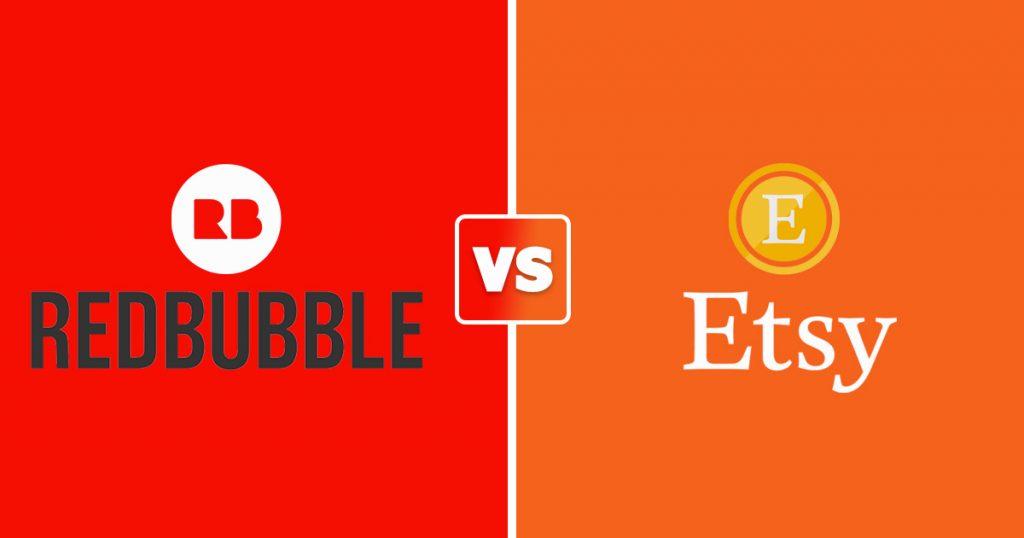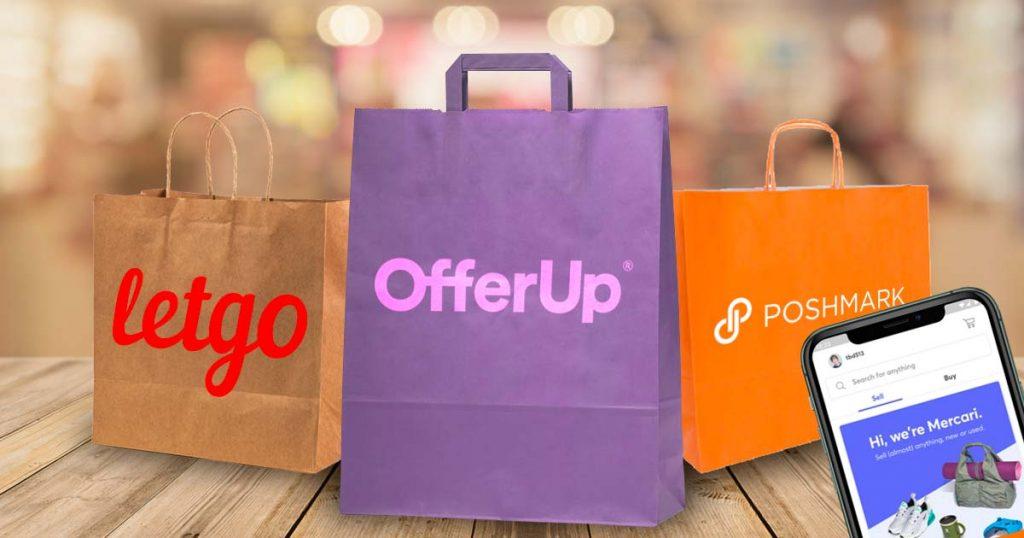Redbubble and Etsy are two of the most popular platforms for selling handmade goods online. Many artists, designers, and producers can showcase and sell their one-of-a-kind goods on both. However, they differ in their methods, target audiences, and seller experiences. Understanding the differences between Redbubble and Etsy can help you choose the best platform for your creative business.
What is Redbubble?
Redbubble is an online store where artists can sell designs on apparel, stickers, phone cases, and home decor, among other things. Founded in 2006, Redbubble has grown into a global platform where independent artists can reach a broad audience without worrying about manufacturing or shipping.
What is Etsy?
Etsy is a market that has existed since 2005 and is known for selling homemade, vintage, and one-of-a-kind factory-made goods. You can sell a wide range of items on Etsy, from jewelry and clothes to art and home items. Unlike Redbubble sellers, Etsy sellers often have to make, store, and ship their own items.
Etsy vs. Redbubble: The Comparison
Here are the differences between Redbubble and Etsy that can help you choose which platform fits your business best:
Business Model
- Redbubble: Redbubble operates on a print-on-demand model. Redbubble allows artists to post their designs and make, package, and ship them. As a result of this approach, artists can only focus on being creative.
- Etsy: Etsy operates more like a traditional marketplace. Sellers are responsible for creating, storing, and shipping their products. This hands-on method gives sellers more control over the quality of their goods and how their customers feel about them.
Product Range
- Redbubble: Offers a large selection of products with designs shared by users. These products include apparel, home decor, stationery, and accessories. The focus is on custom designs rather than the products themselves.
- Etsy: Offers a wide range of goods, such as handmade items, vintage items, and craft tools. The range is broader regarding product types but relies on the seller’s ability to create or source these items.
Audience
- Redbubble: Appeals primarily to consumers looking for unique, artist-designed merchandise. Its audience is often younger and interested in contemporary and pop culture designs.
- Etsy: Attracts a wide range of buyers looking for handmade, personalized, and vintage items. Its audience appreciates craftsmanship, unique gifts, and one-of-a-kind products.
Ease of Setup
- Redbubble: Redbubble makes it easy to open a store. People who are artists sign up, post their work, and pick out the items they want to sell. Redbubble handles the rest, making it easy for artists to get started.
- Etsy: Setting up a shop requires a bit more effort. Sellers must sign up for an account, add their items, write detailed descriptions, set prices, and keep track of their stock. The process is more involved but offers greater customization and control.
Seller Fees
- Redbubble: Redbubble does not charge listing fees or monthly fees. Instead, they take a base price for each product, and artists set their markup. The final selling price includes Redbubble’s base price and the artist’s markup. People who want to avoid paying upfront may like this plan. Understanding Redbubble seller fees is crucial for pricing your products effectively.
- Etsy: There is a $0.20 selling fee for each item and a 5% transaction fee on the sale price, which covers shipping. A fee of about 3% plus $0.25 is added to each payment. While these fees can add up, Etsy provides a platform with a large, dedicated customer base.
Profit Margins
- Redbubble: Artists can set their markup and control their profit margins. However, the base prices for Redbubble products can be high, which might limit their ability to set competitive prices while maintaining a decent profit.
- Etsy: Sellers have more product pricing flexibility since they control the entire production process. This can help you make more money, especially if you’re selling something crafted or carefully made for someone.
Marketing and Promotion
- Redbubble: Offers limited built-in marketing tools. Artists rely on organic traffic from Redbubble’s marketplace and their own promotional efforts. However, Redbubble does run occasional promotions and sales that can help boost visibility.
- Etsy: It offers many marketing tools, such as Etsy Ads, social media integration, and advertising tools like coupons and deals. Its search algorithm also helps products get discovered based on relevance and customer searches.
Community and Support
- Redbubble: This site has a strong community of artists and provides resources to help them succeed, including forums, blogs, and tutorials. However, due to the high volume of users, customer support can sometimes be less responsive.
- Etsy: It offers robust seller support, including detailed help guides, forums, and direct support. Its community is active and engaged, providing a valuable resource for new sellers looking to learn and grow.
Selling on Redbubble or Etsy?
The choice between Redbubble and Etsy will depend on your individual goals, priorities, and resources as a seller.
Choose Redbubble if:
- You are an artist or designer who wants to focus on creating designs rather than managing inventory and shipping.
- You prefer a hands-off approach to selling, letting Redbubble handle manufacturing and logistics.
- You want to sell on a platform known for artist-designed products with a younger, contemporary audience.
Choose Etsy if:
- You create handmade, vintage, or unique factory-manufactured items and want full control over your products and customer experience.
- You are willing to invest time in setting up and managing your shop, including handling shipping and inventory.
- You want access to a diverse customer base that values unique, personalized, high-quality items.
Redbubble vs. Etsy: Which is the better platform for you?
Both Redbubble and Etsy offer unique advantages for creative entrepreneurs. Your choice between Redbubble and Etsy should depend on your business model, product type, and how much control you want over your selling process. Redbubble is ideal for artists looking for a low-maintenance selling option, while Etsy is perfect for sellers who want full control over their products and customer interactions.
By understanding the key differences between these platforms, you can make an informed decision that aligns with your business goals and helps you succeed in the competitive world of online selling. Whether you choose Redbubble or Etsy, both platforms offer opportunities to showcase your creativity and reach a global audience.
When comparing Etsy vs. Redbubble, consider your priorities and resources. Depending on your products and business model, selling on Redbubble vs. Etsy can be a game-changer,. Assessing the pros and cons of each platform will help you make the best choice for your online selling journey.



